Where Does the Hidden Racism Exist in the White Controlled Political Base in Portland?
Friday, February 26, 2016

Furthermore, I read some poorly conceived Facebook comments, which I saved electronically, from Barnhart and another panel guest, Chloe Edualy, both attacking Fred Stewart and expounding on their knowledge of the black experience as they understand it and have experienced it, presumably, as Caucasian persons.
Please allow me to explain in greater detail; I had been invited to attend the panel discussion by my friend Fred, to hear the candidates speak; those running for city commissioner, against incumbent Steve Novick, who was also present. Aaron Mesh, of Willamette Week, acted as the panel moderator and for the most part did an adequate job of conducting the discussion, until near the end when I noticed he seemed to be giving one of the guests’ preferential treatment. He also engaged in some nonverbal hand gesture communication with the young man holding the elapsed time card.
During the panel discussion, the candidates were asked questions, about their values, intentions and ambitions, as was Steve Novick and they were given a couple of minutes to respond to each question. As 98% of true communication is nonverbal, the behaviors I witnessed were quite revealing. Some might call these behaviors “passive aggressive” in nature, but I will call the behaviors “micro-aggressions” with unconscious, socially conditioned and institutionalized racism at their core.
For the purposes of this article, I will respond to specific issues posed in T.A. Barnhart's editorial, which he hastily uploaded to the Internet, clearly without the benefit of needed editing. Barnhart's personal statement, uploaded to the website, Blue Oregon, regarding what he “saw and heard,” of the panel discussion offers little more than a rambling and incoherent listing of why all the candidates running against Steve Novick are not qualified to be on city council. He supports Steve Novick; a white man and a career politician with little on his track record to boast of regarding accomplishments of any lasting value to the citizens of Portland. Barnhart's remarks regarding Fred Stewart appear to be nothing more than a personal attack on an individual he's had former petty disagreements with on social media.
In Barhart's article, he provided gushing praise regarding the two women on the panel; Susan Stahl and Chloe Eudaly. Barnhart was big enough to acknowledge that there aren’t enough women in positions of political power in Portland, which made him feel “...a bit cruddy,” as a result. This did not stop him from explaining why both women were not qualified to be on city council and that both women were unable to demonstrate “any depth of response,” in their answers to questions.
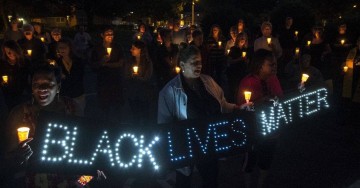
In my own experience with Fred Stewart, I've found him to be one of the most intellectually challenging, tirelessly curious and engaged thinkers and conversationalists that I've ever been fortunate enough to know. Fred Stewart knows more about the history of north and NE Portland than any person I’ve ever spoken with. He is always and painstakingly “civil” in his Facebook interactions, often asking people to help him understand a topic and asking questions of them, in an effort to better understand their perspective. And Fred Stewart is always a complete gentleman in his face to face interactions with people.
Barnhart goes on when he writes, “I grew tired of him pounding on me over something, not listening, arguing a point to the death.” Why does Barnhart feel it necessary to use the word “pounding?” or “...to the death.” Why does he feel that he can suggest there is some form of violence or threat that is occurring, by using the word “pounding” in relationship to Fred Stewart? How is that pertinent to the panel discussion or the social and economic issues that Fred addressed?
Language is quite revealing as to unconscious beliefs and accepted social mores that we all experience and perpetuate. We must be extremely careful how we use language, particularly when communicating with people of color, or we run the risk of presenting “red flags” in much the same way Barnhart has done in his offensive article. Clearly, this manipulation of language, by T.A. Barnhart, in an attempt to negatively portray Fred Stewart, (and insinuate the concept of violence) is one of the most blatant examples of racism that I’ve seen in a long time. Barnhart is likely not even aware of the institutionalized racism that he harbors and expresses so freely and thoughtlessly.
Barnhart goes on, when he writes, “At one point, he interrupted Edualy's answer and would not stop despite the efforts of the moderator, Willamette Week's Aaron Mesh (who did an excellent job) to get him to obey the rules all five participants had agreed on. Stewart had to make his points, so rules and civility be damned.” My “takeaway” from that exchange was interesting and completely different from Barnhart's vitriolic description. Fred Stewart had previously made comments regarding black community members and the kinds of help and support people of color need. As a black man, with countless black friends and family, I think it’s safe to say that Fred Stewart, more than any other member of that panel, would be an expert on the topic of what it feels like, and what it is like to be a person of color and what people of color may or may not need. Fred feels strongly about the incidences of racism that occur, with regard to law enforcement and with regard to the painful lack of black leadership in city council.
As to Fred Stewart ignoring or choosing to not “obey” the rules of the panel, I think that some additional explanation is called for. After Fred Stewart had completed a statement, as to issues facing black Portlander's, Chloe Edualy offered her response. I watched, to my dismay, as she turned her head to her left, toward Fred Stewart and then proceeded to speak in that direction, as if she were speaking directly to him. She announced that she had “black friends” too and might know more about what black people in Portland need or want because she runs a business. In essence Edualy, called him out.
Ms. Chloe Edualy is a Caucasian woman and not a person of color.
This was the comment by Ms. Edualy that created a feeling of intense frustration within Fred Stewart. He spoke out of turn and was admonished by Aaron Mesh to not interrupt Ms. Edualy again. During this exchange, Ms. Edualy yelled, “This is NOT a debate!” Fred then stopped speaking, but the moment did create some short drama in the panel discussion. Fred felt extremely offended that a white woman would suggest, as Edualy did, that she knew more black people and as a result might know what they want better than another person of color. What Edualy suggested was an absurd and naive assertion, (though I doubt she can even conceptualize why.) Given her choice of words, and the condescending tone she used, I am not surprised that Fred Stewart became frustrated and expressed that frustration in the strident manner that he did.
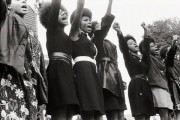
Later, toward the end of the panel discussion, the guests were asked why they would be the best candidate for the job. What I can recall from Ms. Edualy's tone is that she appeared bored and indecisive. She seemed unable to formulate a reason why she would be a good choice and at one point said in a halting, disinterested tone, “Why should you vote for me? Well, I dunno, I guess because...” Her tone communicated a complete lack of engagement and a discernible lack of interest in the proceedings. It was an odd way to respond for someone asking for the public’s trust and for their vote.
After her closing statement, Fred Stewart began his closing statement, about why he would be the best candidate for the job, (which he did in a confident, convincing and strident manner). When he was still speaking, Ms. Chloe Edualy interrupted him and began to bring up the former issue she'd attempted to raise before, about how she had “black friends” too and might know more than Fred about what it is black people need for want. Fred ignored her outburst and continued to speak, trying to talk over her, in an effort to be heard. I sat in the third row and watched as Aaron Mesh allowed Edualy to speak undeterred. Mesh did nothing to indicate that she was interrupting Fred Stewart during his closing statement. Ms. Edualy continued to talk, as Fred attempted to give his closing statement. After approximately six seconds of this, I myself, Theresa Griffin Kennedy, made a harsh shushing sound with my mouth. I wanted to make it clear that Ms. Edualy had no right to interrupt Fred Stewart (we are taught as children that two wrongs don't make a right) and that I wanted to listen to his closing statement without attempts by her, to silence him. The conduct by Ms. Chloe Edualy and Aaron Mesh lead me to believe they both harbor racist beliefs, given their behavior on the panel discussion and their nonverbal behavior.
T.A. Barhart's written statement, later that day regarding the panel discussion, is filled with nonsensical assertions that simply do not reflect well on him. At one point, he continues his attack on Fred Stewart when he writes, “He was also willing to play the reverse race card: He's the only person who can possibly know what black Portlander's are thinking. That's patent nonsense. I have a pretty good idea what many black Portlander's are thinking because I pay attention, I read, I listen, I have conversations.” This statement by T. A. Barnhart is a classic example of the ways in which racist beliefs and behaviors are perpetuated. He seems to really believe that his understanding of the black experience is superior or more complete than Fred Stewart, a black man.
Barnhart contradicts himself when he writes, “I don't presume to speak for them” (black people) “or for any community of which I am not a member, but I do understand a lot of what's going on.” He then further illustrates his lack of understanding when he states, “And of course I have no idea what its like to live in black skin; I can never fully understand that, but I can know enough to be an ally.” I question whether or not Barnhart could ever be an ally to black people; due to his inability to honestly acknowledge all that he can never know, or the ways in which he demonstrated his lack of understanding by his deplorable treatment of Fred Stewart in the smear campaign that his poorly written editorial represents.
Barhart goes on to contradict himself again, when he writes, “Portland has a wealth of leaders of color and we're way behind in supporting their advancement into political leadership.” I am certain that there are many black individuals in Portland who might disagree with Barnhart on this assertion, but once again Barnhart is the expert in Portland regarding black “...leaders of color...” and the black experience. He mentions five people as the kinds of leaders who seem to demonstrate that “Portland has a wealth of leaders of color...”
In Barnhart's article, he admits to another negative confrontation, this time with a member of the panel, Stuart Emmon's, when he confronted him after the panel discussion to tell him, “You were the second most qualified person up there.” Barnhart explains his comments later, in his article. “Yes, I said that to a person I had met for the first time. I can be an insensitive, impolitic jerk.” He further explains, “Yes, I was a jerk, but when you are a candidate or an elected, you will be faced with jerks all the time.” And racists too, apparently.
Later, the same evening of the panel discussion, I found Barnhart's Facebook page and saw more of his blatant racist comments. He wrote, misspellings included, “Fred Stewart interrupted Chloe Eudaly to male sure everyone knows he's the expert on blackness. that's my experience with him: you disagree with him & he'll attack you. and not stop. it's why I unfriended him. February 22 at 4:05pm.”
After nearly seven hours of T. A. Barnhart's comment sitting on Facebook, no person had responded, so I decided to respond. I wrote, “Your clear racism is tragic. You discount Fred's experience as a black man, so flippantly and so casually, as if you have that right, and call his honesty, “reverse racism.” I'm glad I read this post of yours. It confirms my opinion that racism in the liberal community in Portland and PSU is alive and well. I found Chloe to be condescending and patronizing. She also interrupted Fred when he was making his closing statement and it was me, who made that harsh shushing sound. Yes, that was ME. It told her she needed to be respectful and be quiet. I wanted to hear Fred speak, and she interrupted him. Fred was not the only person to get testy today. Chloe sure did too, but she's a white woman, so I guess that makes it okay. Right? Right. You should be ashamed of the way you're trying to present Fred. How utterly racist of you. Now tell me how you have black friends, the way Chloe did. LOL... February 22 at 11:00pm.”Barnhart responded by writing, “nah, i discount Fred from personal experience. February 22 at 11:00pm.” Apparently, “personal experience” means disagreements on social media, according to T.A. Barnhart.
Several hours later, Chloe Edualy responded, and included a link, explaining issues of race, suggesting that I read it. She wrote, “Your characterization of me is absurd and your shushing was rude and out of line considering the conniption fit that Fred threw during my time to speak. He was misrepresenting my remarks and I said FIVE words of clarification. Lucky for all of us we have incredible community leaders within the Black community who know the truth. I suggest you start here:” Edualy then included an active link to a recent article called, “Portland is Racist and white Christians Need to Get Involved Faith Leaders Say,” for me to read. (http://www.oregonlive.com/faith/2016/02/portland_has_a_race_problem_an.html).
By acknowledging that I had shushed her, she also acknowledged that she had interrupted Fred Stewart while he was giving his closing statement. Once again, a white person was attempting to explain race, to a black person. In this case, a white woman, Chloe Edualy, who completely discounted Fred Stewart's experience as a black man, and suggested that not only does she understand issues of blackness better, but she also knows more black people, and therefore is the expert on issues of race and blackness, whereas Fred Stewart, a black man, is not.
If we look further, we can see some of the other issues Ms. Edualy is facing. When she called out Fred Stewart the way she did, during the panel discussion, suggesting she knows more black people in the Portland community, she then termed his outraged response, in her Facebook post as a “conniption fit.” So, apparently, Edualy believes she has the right to interpret, for a person of color, their own complex lived experience and when that person (Fred Stewart) responded in an angry manner, her response is nothing more than describing the end result as “a conniption fit.” Edualy then goes on to say, “Lucky for all of us we have incredible community leaders within the Black community who know the truth.” In other words, Fred Stewart, a black man, does not “know the truth” of the black experience, in all its complexities, dangers and realities.
Conclusion: I don't think I have to explain where I stand on this issue, regarding the covert and overt examples of institutionalized racism that I personally witnessed on this panel discussion and afterwards in Barnhart's written article and in his and Chloe’s naïve and offensive comments on Facebook. Suffice it to say that I am disappointed, not only in people like Chloe Edualy, who should know better, but appalled by the level of ignorance and shameless malice of people like T. A. Barnhart.
It requires a lot more to demonstrate that a white person is an ally to black folks then simply posting an article on issues pertaining to race. It requires carefully thinking about one's comments, and not impulsively pontificating to a person of color, about the experience of being a person of color, as Chloe Edualy and T.A. Barnhart both did, when as Caucasian persons, they are and never will be people of color. It means honoring the experience of people of color as entirely separate from anything a white person could ever conceptualize or imagine.
My “takeaway” of the panel discussion is that Fred Stewart was the resounding winner. He spoke stridently and confidently about his over 25 years’ experience as a real estate agent, and a person familiar with the complex legal aspects of housing and how that issue can be creatively addressed for the homeless in Portland. He spoke of the ways in which City Council needs to change and go back to the old ways of actually listening to the citizens of Portland, rather than resorting to back-room deals and decision making, which effectively push out citizen involvement, making Portlander's feel helpless, unheard, and ultimately marginalized. With Fred's many years as a tireless volunteer on countless boards, and his experience as someone who knows practically everyone in this small town, he brings much to the table that a city commissioner must have, to be successful in that position.
Portland activists, like T. A. Barnhart and others need to stop the repetitive diatribes explaining that Portland needs more leaders of color and actually elect a leader of color. Unlike what Barnhart has claimed, there is not “...a wealth of leaders of color...” in Portland. The numbers of leaders of color, in positions of actual power is mind numbingly small.
So, when you ask the question, where does the hidden racism exist in the white controlled political base in Portland? The answer is simple. It exists everywhere in Portland. As the panel discussion at PSU February 22 has shown, it exits in the thoughtless presumptions of Chloe Edualy, and T.A. Barnhart, to attempt to own the black experience, with no lived experience as a person of color. It exists within the white leadership of the Reginal Arts and Culture Council when they excluded people of color, going against their own stated mission statement to include people of color and promote diversity. Fred Stewart and several other candidates, including Edualy, were both excluded from their “forum for Portland political candidates.” The only two candidates they considered serious candidates were two white males, and already politicians, Ted Wheeler, and Jules Bailey.
During the first few minutes of the panel discussion, one of the panel guests, Stuart Emmons became visibly angry when he spoke about the state of homelessness in Portland. He raised his voice, balled his fist on the table and acknowledged that he was angry. No one told him to be quiet or calm down. When Fred Stewart became angry when a white woman attempted to define for him the black experience that he has lived with for over 50 years, he was shouted down by several people. When I spoke with Fred recently about the disappointing experience on the panel, he had this to say: “It’s so frustrating that black people are told they can’t feel angry about anything. Other people can get angry but when you’re black, you’re not allowed to do that.”
Racism exists everywhere in the world. And it exists in full measure in the city of Portland, Oregon. More people need to be made aware of this and these realities need to be discussed honestly and openly. But perhaps most importantly, more white people need to understand they will never, ever be in a position to apprehend the black experience for themselves. They need to stop insulting people of color, by presuming that they can apprehend that experience.
Theresa Griffin-Kennedy
Related Slideshow: Oregon Black Pioneers Exhibition Opening at Oregon Historical Society
The Oregon Black Pioneers have partnered with the Oregon Historical Society to present a Community on the Move, an in-depth exhibit about the impact of WWII Shipyards, the Vanport Flood, and urban renewal programs on Portland-area black families and businesses in the 1940s and 50s.
Related Articles
- SLIDES: 7 Leading Portland African American Men and their Experience with Police
- Tensions Persist Between Portland Police and the African-American Community
- Leading Portland African American Men and the Police: The Experience
- New Play Brings Stories of an African Family to Portland
- African American Leaders: What Portland Can Learn from Ferguson
- Ebola Takes Toll on Portland’s West Africans
- Black Lives Matter and Don’t Shoot PDX are Emerging as Political Forces in Portland
- Vigil for Black Lives to be Held at Lewis & Clark College
- Black Lives Matter Portland Slams PPA “Having Enough Police Matters” Campaign
- Black Lives Matter Portland “Calls Out” Don’t Shoot PDX
- Rosenblum Admits Oregon DOJ Conducted Surveillance on Black Lives Matter
- Sanders Disavows Black Lives Matter Apology

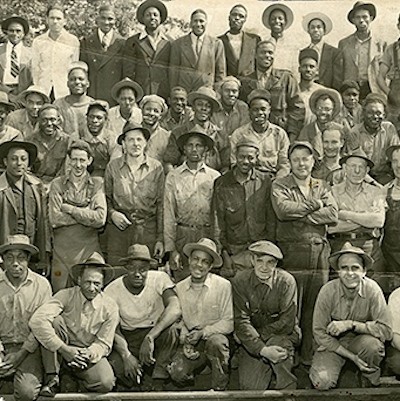
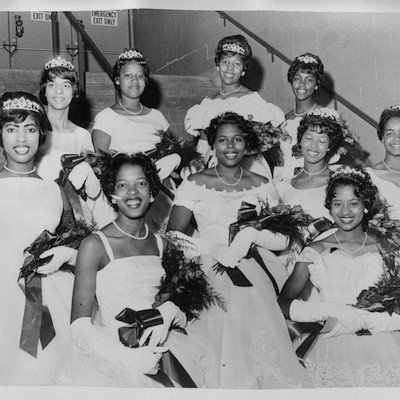
_400_400_90.jpg)

_400_400_90.jpg)
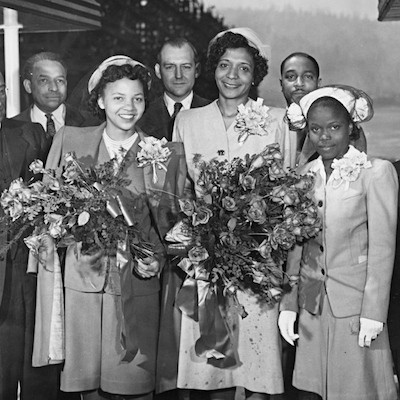


_80_80_90_c1.jpg)

_80_80_90_c1.jpg)




 Delivered Free Every
Delivered Free Every
Follow us on Pinterest Google + Facebook Twitter See It Read It